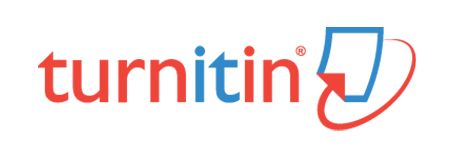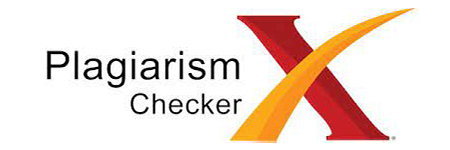Penyelesaian Sengketa Tanah Adat Melalui Lembaga Adat: Studi Kasus di Kabupaten Lombok Utara
DOI:
https://doi.org/10.71094/simpul.v1i1.68Keywords:
tanah adat, lembaga adat, sengketa agraria, penyelesaian konflik, hukum lokalAbstract
Sengketa tanah adat merupakan salah satu persoalan agraria yang terus menjadi tantangan serius di berbagai wilayah di Indonesia, termasuk Kabupaten Lombok Utara. Sengketa ini tidak hanya menyangkut aspek legalitas, tetapi juga menyentuh aspek identitas, sejarah, dan struktur kekuasaan lokal. Di tengah kompleksitas regulasi agraria formal, masyarakat adat di Lombok Utara masih mengandalkan lembaga adat sebagai instrumen penyelesaian sengketa yang dinilai lebih adil, kontekstual, dan berbasis nilai lokal. Penelitian ini bertujuan untuk mengkaji secara mendalam peran lembaga adat dalam menyelesaikan sengketa tanah adat serta dinamika yang terjadi dalam praktiknya. Penelitian ini menggunakan pendekatan kualitatif dengan metode studi kasus. Data dikumpulkan melalui wawancara mendalam, observasi partisipatif, dan studi dokumen. Hasil penelitian menunjukkan bahwa lembaga adat memiliki otoritas moral dan kultural yang tinggi dalam menyelesaikan sengketa tanah, namun dihadapkan pada dilema legitimasi formal dan tumpang tindih dengan sistem hukum negara.
References
Afiff, S., & Rachman, N. F. (2020). The struggle for land: Insights from agrarian conflict in Indonesia. Journal of Peasant Studies, 47(5), 1041–1063. https://doi.org/10.1080/03066150.2019.1680544
Bedner, A., & Arizona, Y. (2019). Adat in Indonesian Land Law: A Promise for the Future or a Dead End? Bijdragen tot de Taal-, Land- en Volkenkunde, 175(2–3), 207–231. https://doi.org/10.1163/22134379-17502003
Bedner, A., & Arizona, Y. (2019). Adat in Indonesian land law: A promise for the future or a dead end?. The Asia Pacific Journal of Anthropology, 20(5), 416–434. https://doi.org/10.1080/14442213.2019.1670246
Butt, S., & Lindsey, T. (2020). Indonesian Law. Oxford University Press.
Fitrani, F., Hofman, B., & Kaiser, K. (2018). Decentralization and local governance in Indonesia: Challenges and future directions. In N. L. Peluso & C. Lund (Eds.), Power, land and identity: Understanding land conflict in Southeast Asia (pp. 122–139). Routledge.
Galudra, G. (2021). Recognition without Rights: The Weakness of Customary Land Rights Recognition in Indonesia. Forest Policy and Economics, 130, 102516. https://doi.org/10.1016/j.forpol.2021.102516
Lucas, A., & Warren, C. (2013). Land for the People: The State and Agrarian Conflict in Indonesia. Ohio University Press.
Lucas, A., & Warren, C. (2013). Land for the people: The state and agrarian conflict in Indonesia. Ohio University Press.
Narayan, D., & Syahrul, M. (2022). Participatory Land Governance and Customary Institutions: Localizing Agrarian Reform in Eastern Indonesia. Journal of Rural Studies, 89, 45–56. https://doi.org/10.1016/j.jrurstud.2021.11.012
Nicholson, P., & Lowry, J. (2021). Customary land rights and legal pluralism in Indonesia: Pathways to recognition. Journal of Legal Pluralism and Unofficial Law, 53(2), 220–244. https://doi.org/10.1080/07329113.2021.1920539
Sumardjono, M. S. W. (2018). Hukum Agraria Indonesia: Kontekstualisasi dan Implementasi. Yogyakarta: Gadjah Mada University Press.
Tyson, A. D. (2022). Adat, identity and the state: The politics of reclaiming indigenous land in Indonesia. The Australian Journal of Anthropology, 33(1), 60–76. https://doi.org/10.1111/taja.12394
Vel, J. A. C., & Bedner, A. (2020). Decentralisation and village governance in Indonesia: The return to the nagari and the 2014 Village Law. Journal of Southeast Asian Studies, 51(2), 247–267. https://doi.org/10.1017/S0022463420000203
Vel, J. A. C., & Bedner, A. (2020). Recognising Indigenous Land Rights in Indonesia: Why Judicial Recognition Works Where Administrative Recognition Does Not. Asian Journal of Law and Society, 7(1), 1–22. https://doi.org/10.1017/als.2019.37
Downloads
Published
Issue
Section
License
Copyright (c) 2025 Raden Wira, Renaldi Hidayat (Author)

This work is licensed under a Creative Commons Attribution-ShareAlike 4.0 International License.










